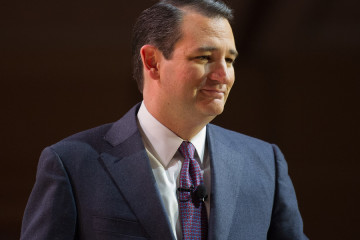Supreme Court Bar Engages in Some Back-Scratching: Noah Feldman

©2015 Bloomberg View
NSKF316JTSEI
(Bloomberg View) — A goodly portion of the Washington legal establishment has filed a friend of the court brief asking the U.S. Supreme Court to reverse the conviction of a securities fraudster. But the court shouldn’t take the bait, or the case. The court doesn’t, and shouldn’t, engage in what it calls error correction, except maybe in death penalty cases. And the Washington lawyers, who know this perfectly well, aren’t on board primarily to establish a principle. They’re engaged in a low-stakes process of mutual benefit that’s well-known to legal insiders but, if successful, would amount to a distortion of the court’s processes on behalf of fancy — and expensive — former government lawyers.
The legal issue or, rather, nonissue, begins with George Georgiou, a Toronto broker found guilty in federal court of making $55 million through a stock manipulation scheme in which he artificially created the appearance of an active market. On appeal to the U.S. Court of Appeals for the 3rd Circuit, his lawyers offered a raft of arguments, including the claim that the law should reach trades made on accounts based in Canada, the Bahamas, and Turks and Caicos. The court rejected all his appeals — and Georgiou hired a new lawyer for his Supreme Court appeal: Neal Katyal, a former deputy solicitor general and acting solicitor general in Barack Obama’s administration.
The brief to the Supreme Court filed by the former Department of Justice officials ignores the issue of the extraterritorial application of the securities laws, on which the 3rd Circuit focused. Instead it addresses what appeared as a relatively minor issue in the appellate court’s opinion. As part of his appeal, Georgiou had argued that federal prosecutors violated his rights by not providing his lawyers with a bail report and a transcript of the arraignment and guilty plea of its star witness against Georgiou, a man called Kevin Waltzer, who took part in the government sting that caught Georgiou. That material indicated that Waltzer took drugs, including cocaine, and had been treated with psychiatric medications for a variety of mental disorders.
The 3rd Circuit rejected the claims. It said that Georgiou’s lawyers had known about the cocaine use and had asked Waltzer about it at trial. And it said that the evidence of mental illness was just as available to Georgiou as it was to the government. All either side had to do was request the transcripts, which were public documents. The bail report could also “have been accessed through [the] exercise of due diligence.” For good measure, the appeals court said that the mental health evidence wasn’t material to Waltzer’s credibility — and that there wasn’t a reasonable probability that the jury would have decided anything differently than it did if the information had been introduced at trial.
Ordinarily, there would be no chance of certiorari being granted by the Supreme Court in such a situation, which the court calls “error correction.” The court gets many thousands of petitions a year, and these days hears between 70 and 80 cases. If it took every case where the Court of Appeals made a mistake, its gears would grind to a halt.
Ordinarily, the court takes cases involving a split between the appeals courts on an important question of law. (Sometimes an issue is of pressing national importance, and the absence of a circuit split might be overlooked.) When the case involves no circuit split, the law clerks’ memo to the justices describing it refers to the case as “splitless.”
The court also tries to avoid cases where the details of the facts would make a precedential decision difficult or impossible. The court’s justices and clerks refer to such cases as “fact-bound.” Georgiou’s case is a classic instance of a fact-bound appellate decision. Even if the 3rd Circuit Court of Appeals got the law wrong, the particular facts of the case might well require the Supreme Court to say that Georgiou would still have been convicted — which would render it impossible for the court to issue a precedent-bearing decision.
So how does it happen that former senior Department of Justice officials sign a brief asking the Supreme Court to hear a splitless, fact-bound case involving error correction and no issue of pressing national importance?
The brief was signed by Seth Waxman, former solicitor general in the Bill Clinton administration, who has an important and highly sophisticated Supreme Court practice staffed by excellent and brilliant former Supreme Court clerks — the same people who spent a year of their lives writing memos for the justices. The brief is carefully written never to claim the existence of a circuit split. Instead it says that the 3rd Circuit has created a “due-diligence rule” — a highly doubtful claim based on the court’s use of the phrase. And it asserts that there is “a growing list” of courts deviating from Supreme Court precedent on the question.
To understand why Waxman’s team wrote the brief and why it was signed by former high-ranking Justice officials, you have to understand the behind-the-scenes process. It’s perfectly ethical for Katyal, a former government official, to call Waxman and ask him if he’s interested in writing the friend of the court brief. It’s perfectly ethical for Katyal or Waxman to call other former officials and ask if they’ll sign the brief.
And it costs almost nobody anything to sign. The worst thing that can happen is that the court will deny certiorari and turn down the case. No one will suffer any real reputational cost if that happens, because the court turns down almost all cases. And everyone involved will have done almost everyone else a favor. They all have rich clients sometimes, and they all like to help one another out when they can do it without compromising ethics or politics.
In practice, the brief means that the Department of Justice will have to spend a little extra time on its own brief opposing a cert grant. And a law clerk or two at the Supreme Court will have to spend extra time on a memo explaining why the case is, after all, a splitless, fact-bound error correction. No trouble for the clerk, who might well be working for one of the signers of the brief a year from now.
So it’s all business as usual in the Supreme Court bar. It’s harmless enough — so long as the court doesn’t actually grant the case a hearing.
This column does not necessarily reflect the opinion of the editorial board or Bloomberg LP and its owners.
To contact the author on this story: Noah Feldman at nfeldman7@bloomberg.net To contact the editor on this story: Stacey Shick at sshick@bloomberg.net
For more columns from Bloomberg View, visit http://www.bloomberg.com/view







No Comment